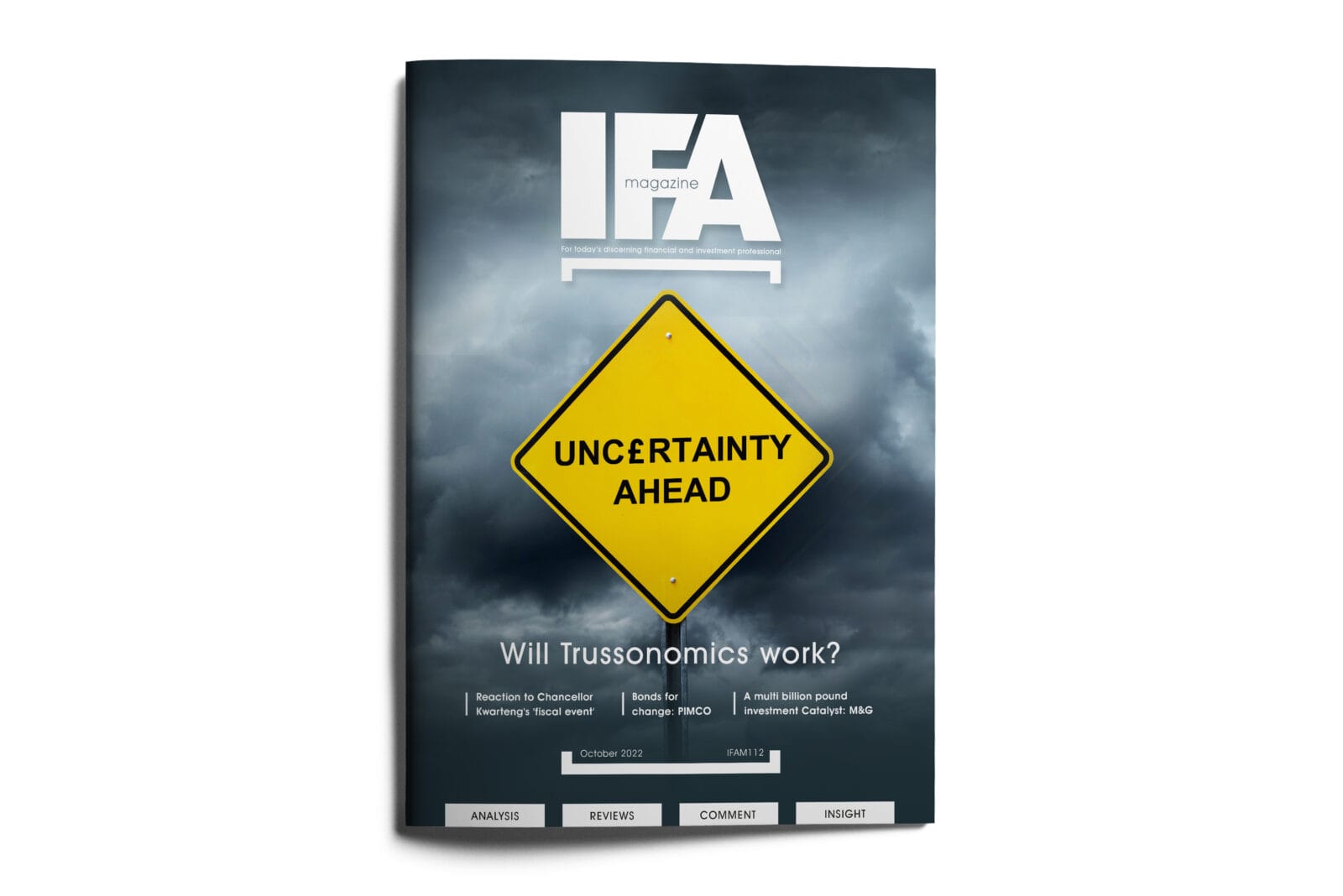Uncertainty ahead
It’s certainly been an eventful month since the previous edition of IFA Magazine. So much has changed here in the UK but if there’s one word which sums it up it would be ‘uncertainty’.
Trussonomics – a new growth plan
Prime Minister Liz Truss and her new Cabinet colleagues are already dominating the news headlines – although perhaps not always in ways they would have wanted.
On September 23rd , Chancellor Kwarteng’s new economic plan was introduced – hard on the heels of reversal of NIC hikes and dividend tax changes as well as the energy support package for consumers and then businesses. The Growth Plan aims to restore economic growth back to its historic average of 2.5% a year by introducing a series of tax cuts and incentives to encourage enterprise and simplification. The plan has attracted much attention – and criticism – with markets taking fright about the impact on government borrowing costs, on Sterling, inflation and therefore interest rates.
But the question on everyone’s lips is will it work? Will it avert a recession? Forty years ago, I was an undergraduate student of Economics at University College Cardiff. My tutor back in those days was a certain Prof. Danny Blanchflower, an economist who subsequently became a member of the BoE MPC during the financial crisis. He’s never been afraid of voicing his opinions but, tweeting just after Kwarteng’s statement with the pound plunging and UK bonds and equities under pressure, Blanchflower described it as “the economics of the madhouse”. Only time will tell whether that will turn out to be the case or not. However, as you flip the pages of IFA Magazine, on pages 28-34 we’ve shared just some of the early responses to the Chancellor’s statement – including the welcome given by the industry to the removal of the ‘sunset clause’ on EIS and VCT schemes. But that’s not all of course.
The business of advice
For advisers, there is always work to be done. Kwarteng’s ‘fiscal event’ has certainly given financial advisers and planners a lot to think about as they review their clients’ financial plans accordingly. However, it means that UK base rates are likely to need to go up further and faster than previously anticipated. A 6% UK base rate by May is now a distinct possibility. The cost of living crisis is set to get even more intense for millions of consumers as winter sets in. Those clients who have the guidance and support of a trusted financial adviser will be in the strongest positions.
Sue Whitbread
Editor, IFA Magazine







